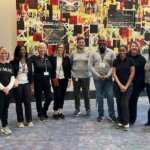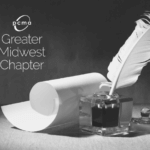How Should You Measure the Success of Your Event?
By Richard Anderson, Vice President, Strategic Services Shepard LiveEX
On the surface, there seems to be only one metric to measure the success of an event like a conference: attendance. More attendees mean more ticket revenue, which means more people see whatever exhibitors want to exhibit, right?
However, the lived experience of any conference-goer refutes this simplistic logic. Many businesspeople have been to well-attended conferences that seemed irrelevant, boring or just forgettable. Though whoever hosted a conference may feel satisfied just by looking at the number of people milling around the event, the actual attendees and exhibitors probably have a much different view of success.
Diverse Groups Will Have Diverse Definitions of Success
To determine what overall success looks like for an event, you must know what success looks like for the varied groups of stakeholders involved in the event. This is not only important in a post-mortem sense.
In fact, for an event to be successful in a holistic way, you first have to define success for the various segments involved, especially if the event will be repeated year after year. Attendees want engaging events that provide valuable, actionable information. Exhibitors want to build social capital and, usually, actual capital, mostly in terms of a growing customer base.
As Always, Data Is Your Friend
Data is essential to understanding the success of an event on all fronts. Usually, the tools necessary to collect this data need to be set up ahead of an event, so how this data will be captured needs to be part of the event planning process.
There are plenty of high-tech methods to gather data during and after an event. Heat maps can be especially useful – they can show how many people visited a specific area and how long they stayed there. Usually, this data is collected by embedding radio, Bluetooth or Wi-Fi chips that connect to beacons placed throughout a conference center.
Measuring social media engagement, such as how often an event-specific hashtag is tweeted, is helpful too.
Other methods are lower tech – simple surveys and focus groups are great ways to capture useful data. Of course, session and overall event attendance are important figures to track.
Boost Attendee Satisfaction
Attendees want to learn, network and have fun, depending on the type of event or conference. They want engaging sessions and beneficial keynote speakers paired with a lively exhibitor floor and memorable entertainment.
To measure whether attendees thought an event was successful, it is important to suss out what garnered the most interest before and after the event. Tracking website engagement can be extremely useful – what topics and speakers received the most clicks? How big were the crowds at each session?
Setting up diverse programming can also better reveal what attendees respond to best, while ensuring there is something for pretty much everyone. Session titles can range from the serious to the silly. Mix in some entertaining contrarians with the respected thought leaders. Play with different session types – schedule some lightning rounds and all-day workshops, for example.
Allow Exhibitors and Sponsors to Feel Successful
In crude terms, the exhibitors and sponsors of an event probably define success by how many buyers they connected with.
This can be improved and measured in several ways. For instance, an event-specific app could match potential clients with exhibitors, encouraging the two to meet in person on the exhibition floor.
Exhibitors want to feel that they are an essential part of an event, not an afterthought relegated to a poorly attended floor of a cavernous conference center. They want to be showcased on websites and signage; attendees should be encouraged to interact with exhibitors wherever possible.
Reach out to exhibitors and understand their goals for an event, such as what types of buyers they would like to interact with. Boost their signal – perhaps an exhibitor co-hosts a session at their booth that appeals to their desired customers. After the event, feedback from sales teams and exhibitor lead retrieval data can help reveal whether this group felt the event was successful.



